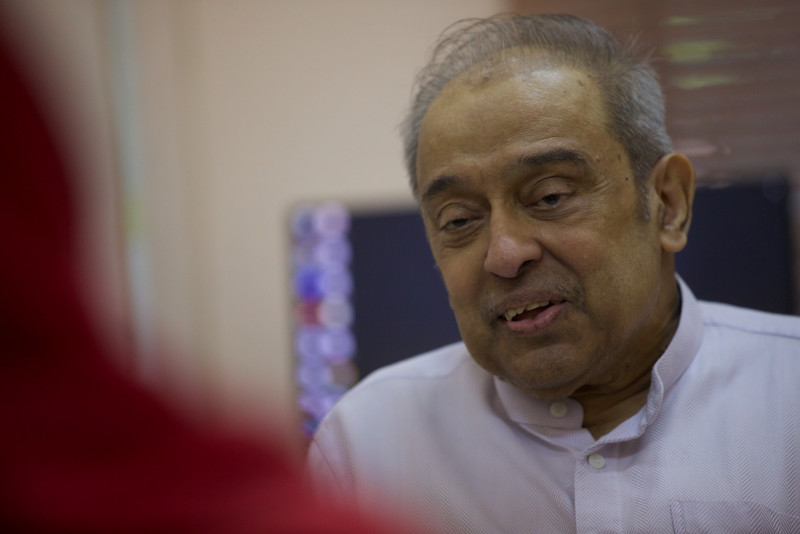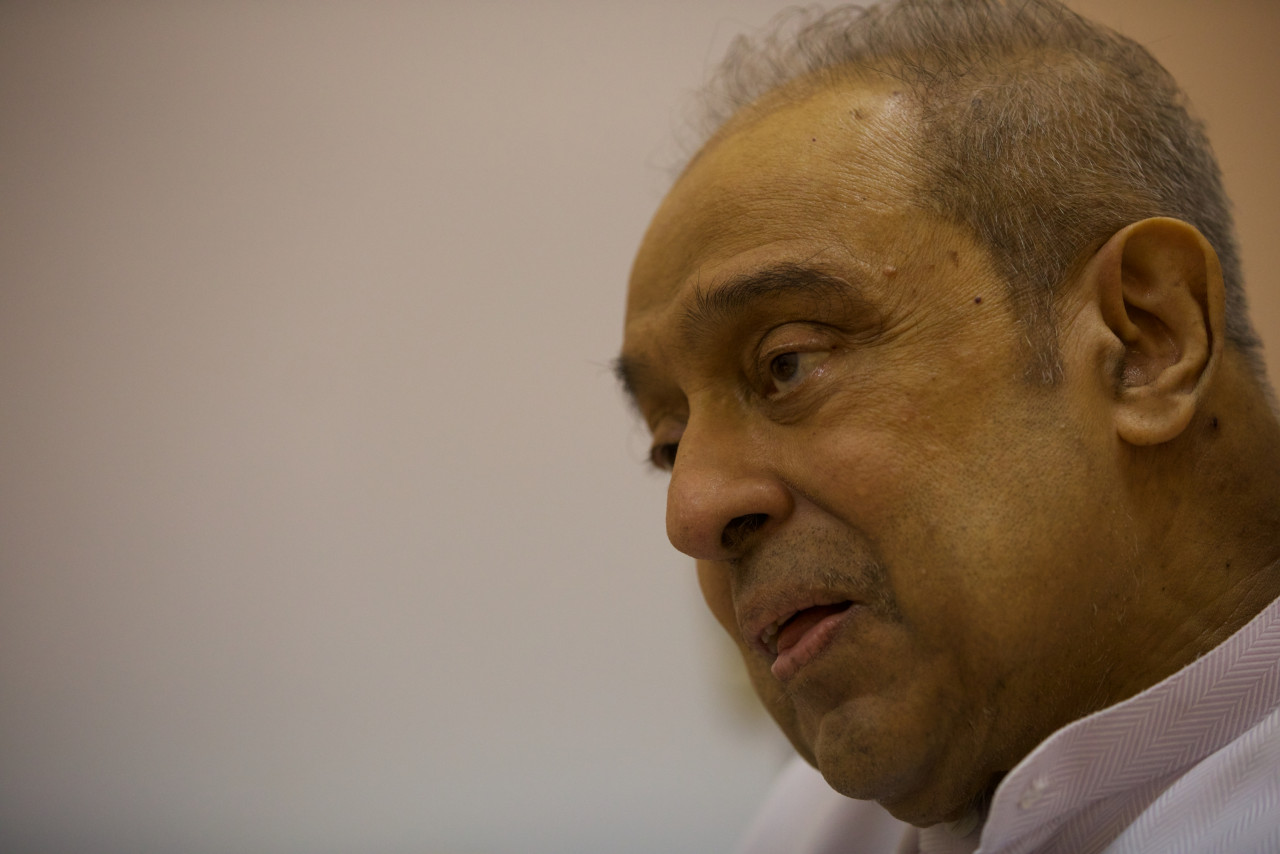Not fair to blame vernacular schools for being divisive: Chandra Muzaffar
Comprehensive study needed as students, teachers of various backgrounds attend them, says academic

Chandra Muzaffar says Malaysia needs to recognise strength in its diversity, which is something Malaysians should not be ashamed of. – The Vibes pic, January 12, 2022
KUALA LUMPUR – Blaming vernacular schools for inculcating divisive politics, racism, and discrimination is reductive and unfair, said International Movement for a Just World president Chandra Muzaffar.
Instead, he said, a comprehensive study on the matter should be conducted as more students of different ethnicities and teachers of different backgrounds attend vernacular schools these days.
“This is something people have talked about for a long time – that our school system is divisive, which then negatively impacts national unity.
“Personally, it’s something Malaysians must study in depth before concluding if vernacular schools truly divide us.
“I know people who attended Chinese or Tamil schools, yet are very accommodative. At the same time, I know people who went to sekolah kebangsaan (national schools) and have had the chance to mix with other communities, but are quite narrow-minded,” he told The Vibes.
Before 2021 came to an end, the Kuala Lumpur High Court dismissed a 2019 application challenging the constitutionality of vernacular schools in the country.
KUALA LUMPUR – Blaming vernacular schools for inculcating divisive politics, racism, and discrimination is reductive and unfair, said International Movement for a Just World president Chandra Muzaffar.
Instead, he said, a comprehensive study on the matter should be conducted as more students of different ethnicities and teachers of different backgrounds attend vernacular schools these days.
“This is something people have talked about for a long time – that our school system is divisive, which then negatively impacts national unity.
“Personally, it’s something Malaysians must study in depth before concluding if vernacular schools truly divide us.
“I know people who attended Chinese or Tamil schools, yet are very accommodative. At the same time, I know people who went to sekolah kebangsaan (national schools) and have had the chance to mix with other communities, but are quite narrow-minded,” he told The Vibes.
Before 2021 came to an end, the Kuala Lumpur High Court dismissed a 2019 application challenging the constitutionality of vernacular schools in the country.

Chandra Muzaffar says it is important for Malaysians to know and recognise the country’s history involving race. – The Vibes pic, January 12, 2022
The court also ruled that the existence of vernacular schools, as well as the use of Tamil and Chinese languages in those institutions, are in line with the provisions of the constitution.
Meanwhile, Chandra said it is important for Malaysians to know and recognise the country’s history involving race.
“You cannot run away from history as it reminds us of each other’s origin – the nature of our society. It is also important to understand that each state has different communities and cultures.
“This is not a major issue. It is what you do in response amid this diversity that really matters. We have to encourage each other to respect each other.
“Our diversity is our strength because it enhances the quality of our nation.”
He added that the formative years are important when nurturing racial and religious harmony.
“A child’s understanding and attitude towards diversity has a big impact on unity.
How a parent or guardian feels about a particular community, the way they interact towards a community, and their reactions shape their children’s worldview.”
“Formal education is not the only aspect in nurturing unity. Parents and guardians play a vital role in the upbringing of their children.
“Consequently, they must portray traits to set an example of how children should react to those of different ethnicities.”
Chandra said Malaysia needs to recognise strength in its diversity, which is something Malaysians should not be ashamed of. – The Vibes, January 12, 2022
The court also ruled that the existence of vernacular schools, as well as the use of Tamil and Chinese languages in those institutions, are in line with the provisions of the constitution.
Meanwhile, Chandra said it is important for Malaysians to know and recognise the country’s history involving race.
“You cannot run away from history as it reminds us of each other’s origin – the nature of our society. It is also important to understand that each state has different communities and cultures.
“This is not a major issue. It is what you do in response amid this diversity that really matters. We have to encourage each other to respect each other.
“Our diversity is our strength because it enhances the quality of our nation.”
He added that the formative years are important when nurturing racial and religious harmony.
“A child’s understanding and attitude towards diversity has a big impact on unity.
How a parent or guardian feels about a particular community, the way they interact towards a community, and their reactions shape their children’s worldview.”
“Formal education is not the only aspect in nurturing unity. Parents and guardians play a vital role in the upbringing of their children.
“Consequently, they must portray traits to set an example of how children should react to those of different ethnicities.”
Chandra said Malaysia needs to recognise strength in its diversity, which is something Malaysians should not be ashamed of. – The Vibes, January 12, 2022
This mamak-ised aneh is seeking for its 2 sec acknowledgement AGAIN!
ReplyDeleteHe obviously has forgotten about his past rants about the irrelevancy of the vernacular education while promoting that abdominal assimilated keluarga media narrative!